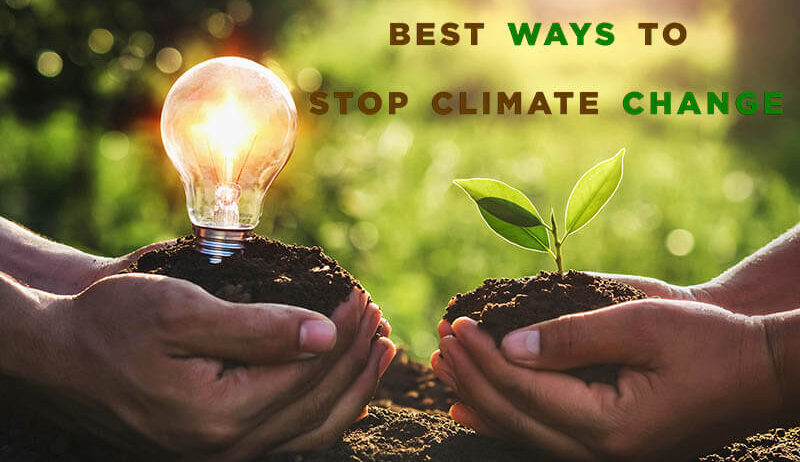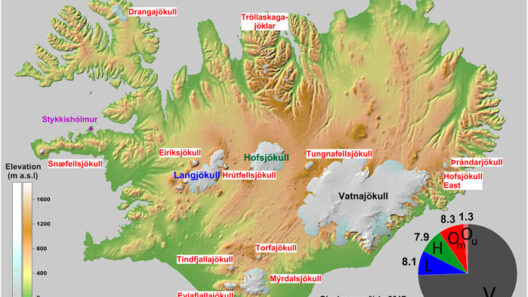Climate change is a behemoth of a challenge—an overwhelming ocean swelling from the tides of industrialization and consumerism. Yet, individual actions are pebbles, each capable of creating ripples that extend far beyond their immediate surroundings. As we delve into the best ways to combat climate change, we will consider how small acts can lead to monumental impacts, transforming the narrative from despair to hope.
To commence, it is imperative to acknowledge the significance of reducing our carbon footprint. Each of us emits a unique blend of greenhouse gases through daily activities, from the vehicles we drive to the energy we consume in our homes. Adopting energy-efficient practices can be likened to tightening the lid on a boiling pot; it minimizes the steam escaping into the atmosphere. Simple actions like switching to LED lightbulbs, unplugging devices when they are not in use, and investing in energy-efficient appliances collectively reduce energy consumption, resulting in lower carbon emissions.
Next, consider the dietary choices that define our culinary landscapes. The phrase “you are what you eat” rings particularly true in the context of sustainability. The production of meat, especially beef, is notoriously resource-intensive. Shifting towards a more plant-based diet does not necessitate a complete overhaul of one’s eating habits but embracing more fruits, vegetables, legumes, and grains can create a significant decline in one’s carbon footprint. Every plant-based meal enjoyed is akin to a step towards a sustainable future; each forkful is a vote for the environment, a ripple that strengthens the tide of change.
Transportation has a substantial impact on climate change, and our choices in mobility are pivotal. Opting for public transportation, carpooling, biking, or walking can significantly decrease greenhouse gas emissions. Envision your local streets buzzing with energy-efficient vehicles and bicycles, where the air is cleaner and the community thrives. Car-sharing programs and electric vehicles are becoming more prevalent; making the conscious decision to utilize these resources can serve as a beacon of progress. Our commitment to sustainable transport can turn busy highways into serene paths for future generations.
Moreover, the realm of waste management must not be overlooked. The average person produces a staggering amount of waste, much of which ends up in landfills, releasing methane—a potent greenhouse gas. Engaging in practices like recycling, composting, and reducing single-use plastics fosters a culture of responsibility and awareness. Rather than seeing waste as a mere byproduct, it can be perceived as a resource to be reintegrated into the ecosystem. Each recycled item is not just waste reduced—it is potential reclaimed, a small act that reinforces the foundation of a circular economy.
Additionally, it is essential to advocate for and support renewable energy sources. Investing in solar, wind, or other ecological forms of energy is akin to planting seeds for a flourishing garden of sustainability. Not only do these alternatives significantly reduce reliance on fossil fuels, but they also foster energy independence and security. As individuals, taking the initiative to switch to green energy providers or even installing solar panels on one’s property illuminates a commitment to future generations, showcasing that every contribution matters.
Education is another cornerstone in our fight against climate change. The dissemination of knowledge cultivates awareness and inspires action. Engaging in discussions about the environment, participating in workshops, or advocating for climate literacy in educational curriculums allows for a community-oriented approach to combatting this crisis. The metaphorical sharing of seeds—ideas—can bloom into a myriad of initiatives, each one enriching the soil of communal understanding.
Moreover, supporting local economies can create an indelible impact. Purchasing from local farmers and artisans not only contributes to the local economy but dramatically reduces the carbon footprint associated with transporting goods across vast distances. This practice is a silent yet forceful affirmation of the interconnectedness of our choices, where each local purchase becomes a stitch in the fabric of sustainable community living.
Engagement with policy and advocacy cannot be overstated. Voting for representatives and policies that prioritize environmental concerns fosters a governance structure that recognizes climate action as a priority. This engagement at the civic level can catalyze broader systemic changes, transforming individual waves of action into a tidal wave of change that can influence national and global policy. Such activism empowers individuals and communities, where grassroots movements flourish and amplify voices that demand a sustainable future.
As we consider the concourse of individual actions, it becomes evident that each small step forward is a note in a grand symphony of change. From shifting dietary habits to reducing waste, from supporting renewable energy to advocating for policy changes, every act, no matter how seemingly insignificant, contributes to the overarching narrative of climate action. It is time to transcend the paralysis of despair and embrace a proactive ethos—a collective charge of small acts that yield big impacts.
In conclusion, while the specter of climate change looms large, the power to effect change resides within each of us. The intricate tapestry of our individual efforts, stitched together with intention and resolve, heralds a new era—a future where sustainability is not merely an aspiration but a reality. Let us embark on this journey, recognizing that the sum of our singular contributions can culminate in a formidable movement against climate change, ensuring a legacy of harmony with the Earth for generations to come.








